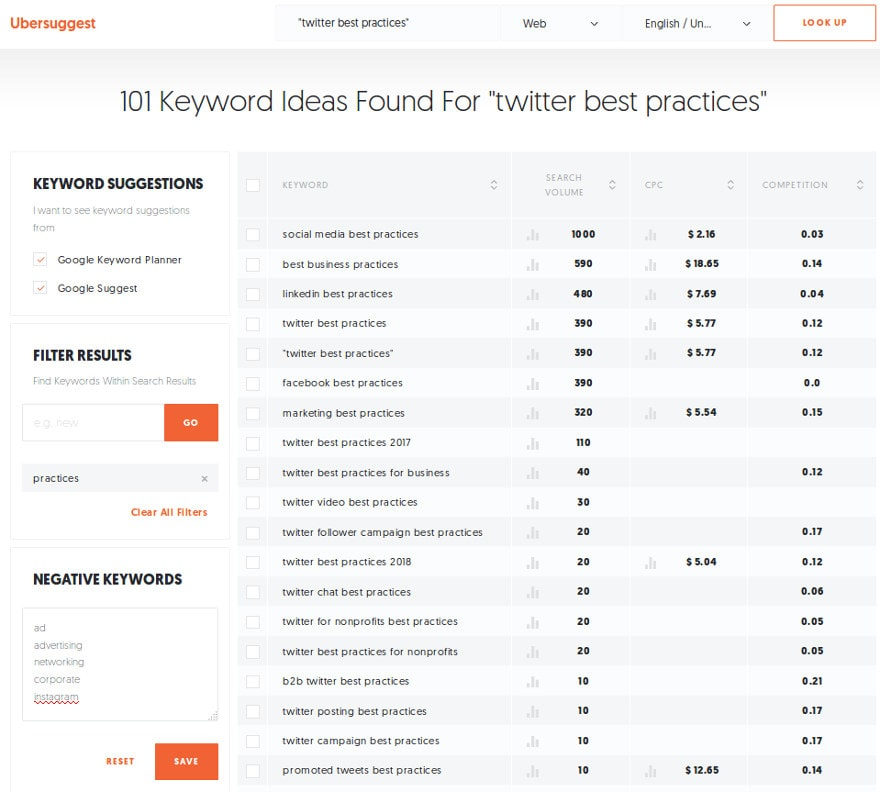Does increasing traffic, leads, and sales seem hopeless? It isn’t. But what you need is a plan. And that plan starts with powerful keyword research.
Back when we started GrowMap, search engines including Google sent us many times more traffic than they do today. Sadly, those days are long gone for most blogs and sites.
RIP: Google Keyword Planner
And something else that is gone is accurate keyword data that Google used to give us for free in Google Analytics and Google Keyword Planner.
It has been many years since analytics revealed what keyword phrases visitors use to find our sites. At first, you could still do keyword research by having an AdWords account – even if you did not buy ads.
Later, SearchEngineLand reported that Google was officially throttling (reducing) keyword planner data even for advertisers who spent money with them if they were not heavy spenders.
Then starting March 26, 2018, Google started suspending AdWords accounts. If you aren’t actively running ads, Google has likely already shut down your AdWords account or may do so in the future.
Even if you are willing to spend periodically to keep access to the Google Keyword Planner within AdWords, how will you know how much you have to spend to actually see all the keyword data?
We obviously need keyword research alternatives. My readers regularly ask me what to use now.
Neil Patel’s Google Keyword Planner Alternative
There are multiple tools, both free and paid. Neil Patel acquired the popular free keyword research tool Ubersuggest, improved it, and made it available free for anyone to use.
Here is a very short video on how it works:
https://www.youtube.com/watch?v=hhCdqS4xaxw
There are some important points to be made regarding using this (or possibly any) keyword tool:
- Trying to enter a phrase using quotes around it to get more relevant results does not work.
- Many unrelated phrases appear in the unfiltered results.
- You can only enter 5 negative keywords.
Unlike Google Keyword Planner, no one needs an account or to login, so using it is super fast and convenient.
How to Do Powerful Keyword Research
As you can see when you try Ubersuggest, there are a lot of results that are not relevant. So here is my strategy for using the tool. Do the steps in this order:
- First, input your search keyword(s).
- Then choose 5 negative keywords and save them.
- Filter results using a specific word.
- Sort by search volume.
This will let you hone in on the most relevant phrases that have the most traffic.
Obviously, there are other methods you can use. This is just one to get beginners started or offer a new way to those with experience.
Here is an example using the process above:

Notes about the above example:
- Even though the search was for “twitter best practices”, I had already confirmed that the results were exactly the same for twitter best practices without the quotes.
- First I removed a lot of irrelevant results using the maximum number of negative keywords allowed. I chose them by scanning the results and using the ones that were listed most often.
- Then I used “practices” as my filter to pull out all the results that included that word.
- Lastly, I sorted by search volume to see which phrases were the most popular with searchers.
At this point, the next step is to check the ones you want to save or export. The reason to do that is so you can re-use your research for more than one page.
I choose this example because my Twitter Best Practices page used to rank for that phrase. Because it was popular, other sites saw searches for that phrase and created content that now outranks mine.
The reason mine wasn’t strong enough to keep ranking was that is it primarily a page that summarizes and links to other posts about Twitter strategies.
So if I wanted to get that post to rank again (now that the competition is stiffer), I would expand the content to be more comprehensive.
And I would use the research I pulled from Ubersuggest to include all the relevant, related phrases that turned up in that new content.
Another way to use the research would be to create additional posts or pages targeting additional phrases and to ensure my existing Twitter strategy pages target the best keywords.
To do that, we need to understand that “best” is probably not what you may think.
Do Not Mistake Low Competition For Easy to Rank!
Even if you never open links in content you read, I strongly recommend you read Why You Can’t Bank on Google’s Keyword Planner Tool.
In it, Darren DeMatas provides excellent advice including this:
“Unfortunately, a lot of people don’t understand the important difference between keyword competition for advertising and keyword difficulty for SEO.”
He goes on to explain that low keyword competition only means that advertisers do not bid on those keywords because they are too general or do not convert.
It does NOT mean you can easily rank for them.
Here is another video that provides an excellent analogy that explains how to choose the best keyword phrases for your posts, pages, and videos.
While his video shows the old Ubersuggest at the end, I share it with you here because his strategy will work in the new version just as well.
Most importantly, I share it because his explanation will make keyword research more understandable to many.
Keyword research is what separates the sites that are successfully growing with those that are falling by the wayside.
Choosing the best keywords and knowing what to do with them is essential to your success. Every site owner must invest time in learning to do keyword research or hire someone to do it for them.
Have you tried Ubersuggest? If you would like to share your tips on keyword research, let us know in the comments.
